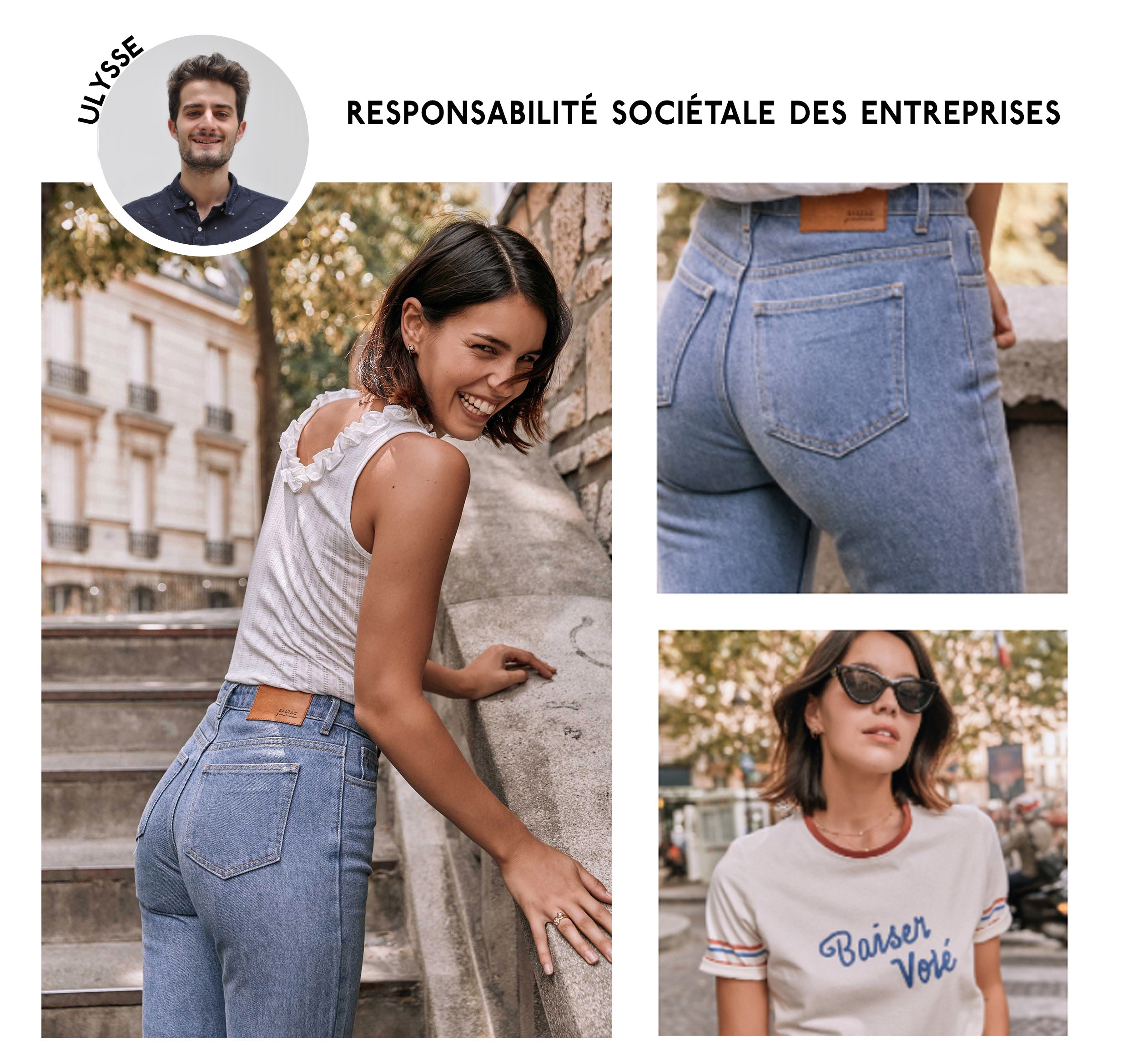Jeans are surely the least responsible piece of our wardrobe, but also the one we couldn't live without. What are responsible jeans? What are the impacts of the production of jeans on our society? How are Mattis, Austin and Joe TPR? So many questions on which Ulysse, CSR manager at Balzac Paris, lifts the veil.
Who are you and what is your role at Balzac Paris?
“I am Ulysse, in charge of social and environmental responsibility for Balzac Paris. I work hand in hand with the teams to make our company ever more responsible and to reduce the environmental and social impact of our activity, from the production of our collections to the delivery of your orders, including the well-being of our employees. »
What is the real impact of the production of jeans on our environment?
“Several choices determine the environmental impact of jeans. To begin with, the choice of material. Jeans are mostly made of cotton. Cotton production is one of the most water-intensive. For example, producing jeans requires between 7,000 and 10,000 liters of water! Then, growing conventional cotton also requires a lot of pesticides. To give you an idea, 25% of the pesticides used in the world are intended for cotton, which represents only 2.5% of the total cultivated area. The use of pesticides in cotton fields pollutes water and damages biodiversity. Then, if you want to give a vintage look to the jeans, it will have to undergo a process called “fading”. For example, the “ stone washing” method of washing consists of washing the jeans with stones and chemicals, which pollutes the water used and consumes a lot of energy. »
And from a social point of view?
“Jeans encounter the same problems as the rest of the textile industry, that is to say, forced labor, child labor, lack of protection, etc. In addition to these issues, jeans encounter additional issues of their own. Another washing technique called “ sablage” consists of throwing sand at high pressure on the denim. Inhaling this sand, and more particularly the silica it contains, can lead to an incurable and potentially fatal lung disease: silicosis. »A few months ago , we launched organic cotton jeans. Today we are releasing 100% TPR jeans! What are these new jeans responsible for?
“If we trace the evolution of jeans at Balzac Paris, barely a year ago we offered classic jeans, made in Portugal. In April 2019, the brand took a first step towards responsible materials. We were offering, Joe, our very first organic cotton jeans. And Mattis, made from 40% recycled materials. 5 months later, we are taking a new step. In addition to being made of organic cotton, our jeans are now laser washed. And to go even further, these new jeans are labeled GOTS (Global Organic Textile Standard)”Why organic cotton ?
“Organic cotton is produced without any pesticides and GMOs. It does not pollute the water, and preserves biodiversity. Its production emits 50% less CO 2 than conventional cotton. »
Joe is made from 99% organic cotton

Austin is made from 99% organic cotton

Mattis is made from 99% organic cotton
Why is a laser wash more responsible than a traditional wash?
“From an environmental point of view and compared to a traditional wash, laser-washed jeans consume:- 95% less water
- 60% less energy
- 80% less chemicals
What does the GOTS label guarantee?
“For a garment to be labeled GOTS (Global Organic Textile Standard), all actors in the supply chain must have been checked according to very strict environmental and social criteria. For example, many chemicals are banned and workers must be able to bargain collectively. In summary, this label offers guarantees on the control of the environmental impact and on the respect of the fundamental freedoms of the workers. »Our jeans are available from August 28 on our eshop .




